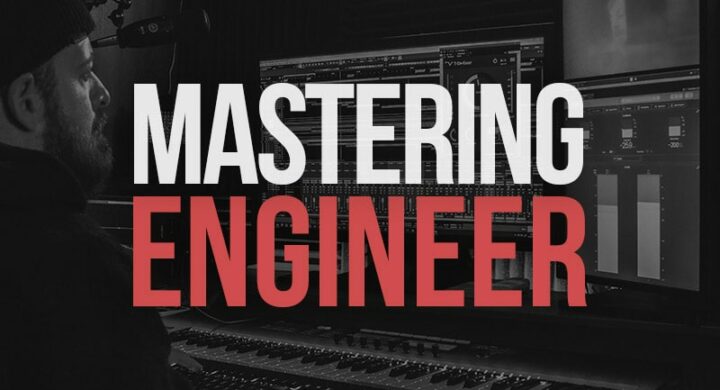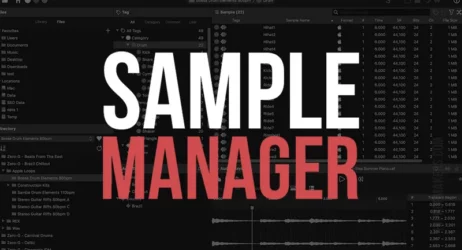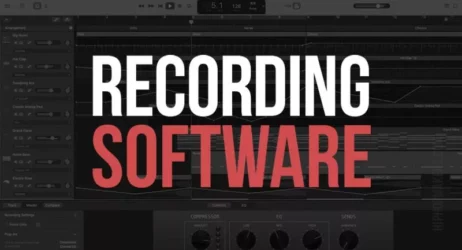This article will answer what is a Mastering Engineer, what they do, how much they make, and how long it takes to become a mastering engineer.
What Is A Mastering Engineer?
A mastering engineer prepares and processes the final mix of a recording, usually for commercial release. Mastering is the process of making all the songs on an album the same volume and sound similar. Mastering involves equalization, compression, and adjustments for maximum loudness levels.
- What Is A Mastering Engineer
- What Do Mastering Engineers Do
- How Long Does It Takes
- How Much Mastering Engineer Make
- How To Become A Mastering Engineer
- Is There A Demand For Engineers
- What Does A Mastering Engineer Need

What Is A Mastering Engineer?
A mastering engineer is someone who is talented in the concept of working with playback that has initially been mixed in either the analog or digital domain as mono, stereo, or multichannel formats. A master engineer prepares it for dissemination through physical media such as a CD, vinyl record, or some streaming audio online.
When appropriate, mastering engineers employ digital and analog equipment to apply and alter the spacing, compression, equalization, stereo enhancement, fades, and other processors of a particular piece of audio. The total volume is also changed, enabling music to be played at constant volume levels on every device.
Back in the older days, the expertise of mastering engineers was limited to translating master mixes to wax masters for bulk record manufacture. Since then, a lot has changed in the mastering world. Mastering has grown dramatically over the years due to technological improvements and the proliferation of broadcast venues.
With technological advancements comes the need for improved mastery skills, methods, knowledge, and experience. Mastering engineers must polish recordings to make a coherent album that sounds fantastic from any source, rather than merely generating wax masters for manufacturing.
Once the music is in the mastering process, the mastering engineer can alter the arrangement with fresh sounds and a distinct take on the song to get a sound that would not have been possible with merely mixing.
Following the original master strategy, the mastering engineer must work collaboratively with musicians, composers, and other master engineers to get the ideal tone that everyone is aiming towards.
Related: What is Mastering?
Modifications to the blend, such as decibel levels, undesired noise, and so on, may be required. The mastering phase will make the track crisper and sometimes louder, which may bring out flaws and imperfections in a song.
Professional masters, the mastering studio atmosphere, and a mastering engineer’s gear must be the highest standard to get the best sounding audio effects. Mastering engineers spend thousands of dollars on top-notch digital and analog equipment to use in the studio.
Due to the high level of competition in the mastering world, it isn’t easy to get highly professional results with subpar equipment.
Most mastering engineer awards are granted to individuals to make a mix consistent in subjective aspects based on listeners’ perceptions, independent of their playback devices or setting.
This is a challenging endeavor because of the many methods presently accessible and the impact on the perceived qualitative qualities of the recording.
Related: 50 Best Free Mastering VST Plugins
What Do Mastering Engineers Do?
One of the most crucial steps before releasing a music album or an audio file is to master or remaster it, and that’s precisely what a mastering engineer does – mastering the audio. Before any release onto a big platform, audio must go through a mastering engineer to polish them.
A mastering engineer’s responsibility throughout history was to relay master mixes to wax, which was done for massive vinyl productions and dissemination. However, with the proliferation in technology, the jobs of a master engineer have changed too.
Today, it’s a prerequisite for master engineers to gear themselves with skills that will enable them to polish tracks no matter what device they’re played on. It is a master engineer’s job to ensure that a produced piece of music is playable on any device, no matter how technologically advanced it is.
Mastering audio to get that clean and refined sound necessitates the use of mechanical and electronic technologies to compress or restrict sound, apply or change EQ, increase a stereo picture, and much more.
Therefore, mastering engineers must be aware of the effective use of technology to facilitate their work.
The volume level across different devices would vary without audio mastering, making an audio mix sound louder and much softer in another. A mastering engineer manages the overall volume, ensuring that the music is played at the same volume regardless of the music’s device.
How Long Does It Take To Become A Master Engineer?
There is no specific duration that is necessary to become a master engineer. You can even start your journey towards becoming a good mastering engineer as early as after high school.
A college degree is not essential to becoming a mastering engineer, but having any form of audio production training from a media school can offer you a significant advantage in the profession. With a degree in audio production, you will be able to quickly learn the software required to work in a range of audio studios.
From musical tracks to sound effects, you’ll learn a wide range of skills that will help you discover your perfect fit in the audio production profession.
A good education may also lay a firm foundation of fundamental notions. A high-quality education program will include music principles, business communication, and the differences between tracking, mixing, and mastering.
How Much Does A Mastering Engineer Make? ( Salary )
In the USA, the approximate salary of a master engineer is $72,500 per year. However, the salary of a master engineer is highly dependent upon their skills and experience – the more skills and experience, the greater the salary.
The lowest annual salary of a mastering engineer can be as low as $22,000/year, the highest being $143,000/year (the mean is $72,500/year).
How Do You Become A Mastering Engineer?
Although there are no formal criteria for working as an audio mastering engineer, practitioners often have extensive domain knowledge in audio engineering and, in many cases, a degree in audio or acoustic engineering.
Most audio engineers specialize in music or voice audio. The most outstanding mastering engineers may also be arrangers and producers, allowing them to ‘troubleshoot’ mix flaws and improve the final sound. In general, strong mastery abilities are founded on experience, which comes from years of training.
There are no official requirements to become a mastering engineer, and you can start your journey as early as after high school – you need a passion for the art.
Mastering engineers often begin their careers as clerks or assistant engineers in recording studios or audio post-production firms, progressing to a career in mastering after gaining the necessary skills and expertise.
Competent mastering engineers may build a name for themselves in the music business by working on top-notch new releases and even remastering legendary classics.
Is There A Demand For Mastering Engineers?
If you’re thinking of becoming a mastering engineer, we’d suggest you follow your dreams as there’s a tremendous demand for mastering engineers today. Furthermore, the demand for mastering engineers is only expected to rise in the future. Skilled mastering engineers have their way of ‘creating’ their demand through their exemplary music mastering/remastering skills.
The Bureau of Labor Statistics says there will be a 7% increase in this employment sector by 2024. This demonstrates that more skilled and adequately educated mastering engineers are required.
Usually, mastering engineers work for mastering studios – there’s a high demand for mastering engineers in mastering studios. You might also find a lot of mastering engineers increasing their impacts through their works in freelancing. These freelancers work with artists, producers, filmmakers, advertisers, and video game studios from all over the world.
If you have a good ear for listening to music, you may also want to consider becoming a mixing engineer.
What Does A Mastering Engineer Need?
When it comes to education, there are no formal requirements for it, and you only need a creative mind and passion for working as a mastering engineer. However, you may find that most mastering engineers possess in-depth knowledge of audio engineering, and some are even geared with an acoustic engineering degree.
There are quite a few pieces of musical gear a mastering engineer needs when it comes to equipment. The most basic gear a mastering engineer will need is audio interfaces, DAWs (digital audio workstations), compressors, loudspeakers equalizers, multiband compressors, limiters, and some kind of visual display.
If you’re willing to go to greater depths, you’re going to need some extras.
These include harmonic enhancers, cables, headphones, conversion software, power conditioners, DDP software, and cables. You’re also going to need analyzers, audio restoration software, books, and audio editing software.
In general, mastering engineers employ a mix of sophisticated audio-signal processors, low-distortion-high-bandwidth loudspeakers (and accompanying amps to drive them), and an ideally designed playback setting.
The equipment and processors used in the field of mastering are almost entirely dedicated to the purpose; engineered to a high standard, often with low signal-to-noise ratios (at nominal operating levels) and, in many cases, the incorporation of parameter-recall, such as indented potentiometers, or, in some more-sophisticated designs, via a digital-controller.
Frequency spectrum analyzers, phase oscilloscopes, and peak, RMS, VU, and ‘K’ meters are typically used throughout the audio processing step of the process to provide a pictorial depiction of the sound or wave being analyzed.
Summary of Mastering Engineers
A mastering engineer is an individual that is proficient in using their technical musical expertise to make the final tweaks to a piece of music before it is released to the public. A mastering engineer makes sure that music projects are amplified and are compatible with the latest playback systems.
I hope you found this information on mastering engineers helpful.
If we missed anything, please share it in the comments.






Hi Mark, I enjoyed reading this article. I didn’t realize there was a high demand for mastering engineers. Thanks for your great work!